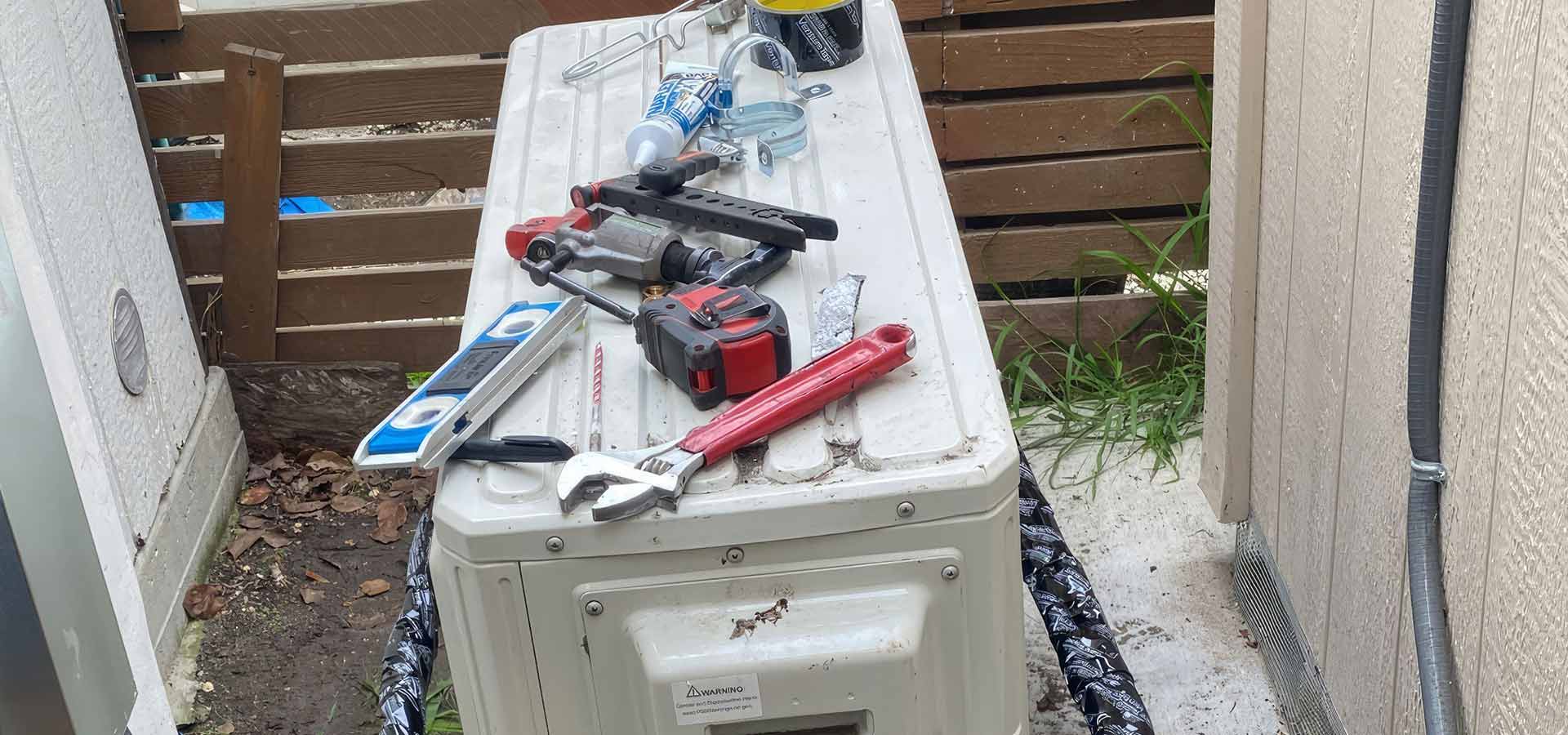Just as your car runs better and longer when it’s well-maintained, your HVAC system offers better comfort, lasts longer, and uses less energy with preventive maintenance. Homeowners and commercial property managers alike can prevent costly HVAC repairs through a regular maintenance schedule.
Don’t know where to start? To keep your system running smoothly, this blog post offers some maintenance tips for your AC unit, heat pump, or furnace–you don’t want any of them to work harder than they have to.
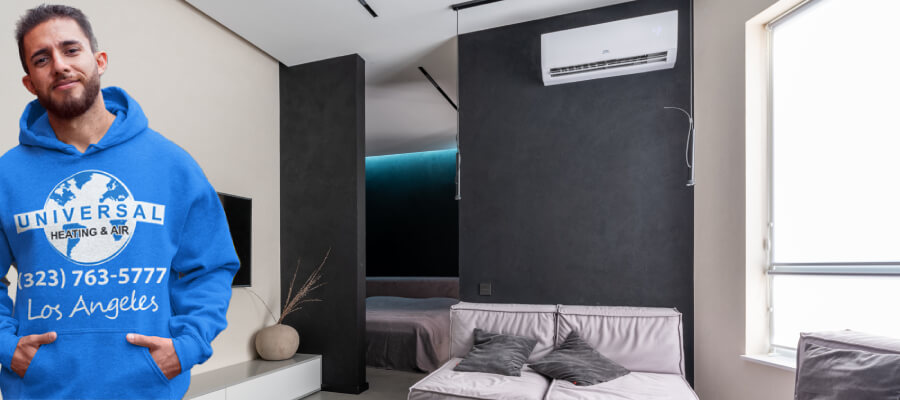
The Importance of Maintaining Your HVAC System
The HVAC systems for homeowners and commercial buildings differ, but regular maintenance on a schedule is essential for both. Preventive maintenance means you can avoid costly HVAC repairs during Los Angeles summers when hot, dry Santa Ana winds make an air conditioner a necessity.
Many homeowners ignore their HVAC system until it breaks down, but with regular maintenance, you can keep your system running smoothly and avoid not just costly HVAC repairs but all of the other common problems caused by a neglected system.
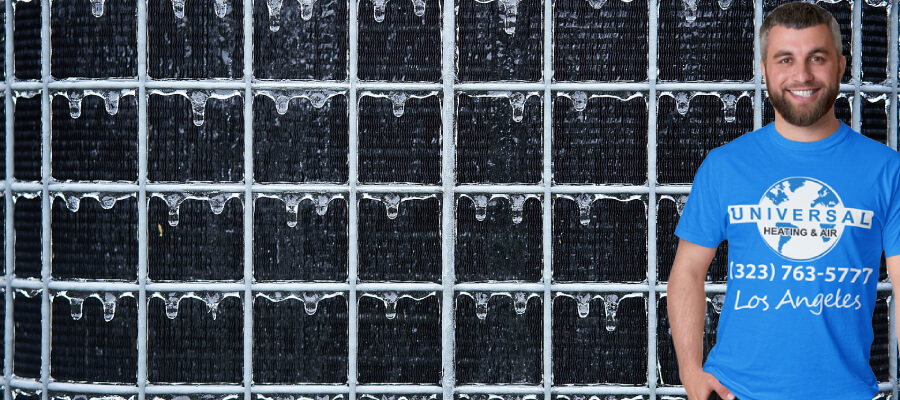
The Consequences of Neglecting Your HVAC Unit
HVAC maintenance is critical, and not just to avoid costly repairs. A poorly maintained has an effect on air quality, utility bills, the amount of dust and dirt in your home or commercial building, and causes more wear and tear, and means your system has to work harder.
What happens when you don’t do regular HVAC maintenance?
 Poor indoor air quality
Poor indoor air quality
Your HVAC system keeps the air in your home or business clean by bringing in outdoor air. This helps dilute any air contaminants and then forces dirt and debris in the air out of the house. This means the air that’s been cleaned and filtered by your air conditioning unit or heating unit stays inside, and polluted and dusty air stays outside where it belongs.
This means proper airflow is vitally important, and clogged air filters or intake system problems create issues with dirt, dust, mildew, and other debris that can make allergies worse or lead to asthma attacks or other respiratory problems.
It’s essential to replace the air filters regularly (four times a year) to keep your HVAC system running at peak performance but to avoid costly HVAC repairs. The general rule of thumb is to replace air filters every 90 days for optimum HVAC airflow and to keep dirt, debris, and other harmful components out of your home or office.
 Carbon monoxide exposure
Carbon monoxide exposure
Going hand-in-hand with poor air quality from your AC unit are air quality issues created by your furnace, and this particular problem can cost the life of yourself or someone you love.
We’re not just talking about gas leaks. Another danger is posed by carbon monoxide, created during the combustion process. Problems of this kind can mean a costly repair or installation of new heating. This gas is colorless and odorless. A properly cleaned heating unit will vent the carbon monoxide, and that means your home is safe and at a comfortable temperature during both the summer and winter months.
But, if your exhaust system is not maintained, it can be dangerous. Clogged exhausts mean gas buildup, which causes carbon monoxide to spread throughout your home.
Carbon monoxide is dangerous because it’s colorless, tasteless, and odorless, which is why your should call to schedule an HVAC technician to inspect your system–it’s the best way to avoid expensive repairs and keep your HVAC system running at peak performance.
 Air filter damage
Air filter damage
Most homeowners know that air filters must be changed as part of regular HVAC maintenance, but you may not realize just how important a clean air filter is to the entire HVAC system.
You see, the role of an air filter isn’t just to remove particles in the air. These air filters are also important when it comes to the temperature of your home and the efficiency of your HVAC unit. If you don’t replace air filters regularly and your air conditioning and heating system becomes clogged, you dramatically reduce the lifespan of your entire HVAC system because it is excessively consuming energy. This, of course, also has an effect on your energy bills.
 Loud noises
Loud noises
Never ignore loud or strange noises. Call an HVAC contractor to inspect your outdoor unit. When your HVAC unit is running properly, it is almost silent, with just a hum when your AC unit goes on that blends into the background.
However, without regular maintenance, you could hear loud noises issuing from your HVAC unit. This means it’s time to call an HVAC technician. This is considered an emergency repair, and you should prepare for costly repairs.
You can avoid costly HVAC repairs through proper HVAC maintenance, which means your air conditioning system (including the outdoor unit), heat pumps, and other parts of your heating and cooling system.
 Not enough cool air from your AC
Not enough cool air from your AC
You keep turning the thermostat down, but your home still isn’t cool enough. There are several reasons why you aren’t getting cool air.
- Clogged filters. When an air filter is clogged with debris, airflow is compromised. It’s important to remember that air filters are important components for HVAC efficiency.
- Dirty evaporator coil. Over time, evaporator coils become dirty and clogged with debris. Sometimes, they freeze and can cause a lack of cooling.
- Your thermostat is faulty. If your thermostat isn’t operating properly, it can cause any number of problems. Your system might not turn off or on, it may cause short cycling, and it may not keep your surroundings at the temperature you set. Sometimes thermostats can be repaired, but a thermostat over 10 years old should be replaced. This is also a great opportunity to replace your thermostat with a modern digital version that can help increase energy efficiency, which results in lower energy bills.
- Low refrigerant levels. The level of refrigerant drops because of leaks in your system. And as they drop, less heat is removed from the air, your system has to work harder, and your energy bills increase. Refrigerant leaks also lead to excess moisture, which can become a breeding ground for mold. Although you might want to replace the refrigerant yourself, that’s a bad idea. Only an EPA-licensed HVAC technician can reclaim Freon.
 Complete breakdown
Complete breakdown
Lack of preventative maintenance can not only lead to HVAC issues that require frequent repairs but can eventually break your entire system. High energy bills, loud noises, funky smells, and lack of cooling can be minor problems, costly repairs, or require the installation of a new air conditioning system.
The same applies to your entire HVAC system. Clogged filters and lack of preventative maintenance of other components lead to costly repairs and the breakdown of your entire system. Even with baseboard heaters, heater issues can be incredibly dangerous, so don’t take any chances.
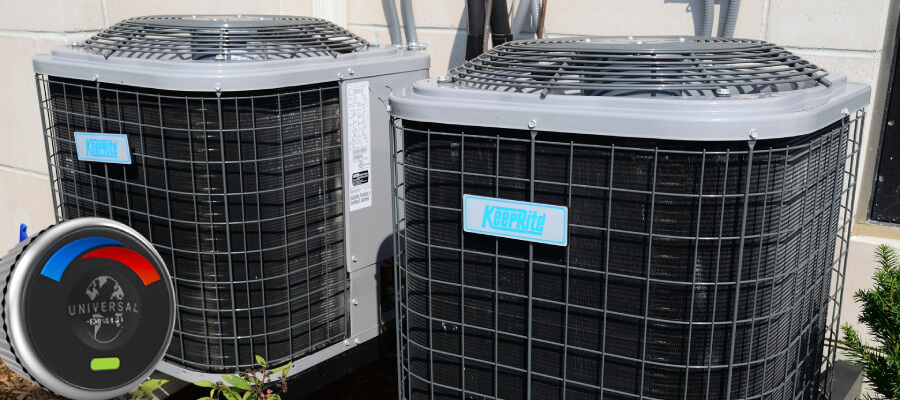
HVAC Maintenance You Can Perform Yourself
Most HVAC system maintenance tips involve a professional, but there are several things you can do on your own to avoid costly HVAC repairs and help with energy efficiency.
 Keep your outdoor unit clear
Keep your outdoor unit clear
Your AC system has indoor parts and an outdoor unit. You have an air handler and evaporator coil inside and a condenser cabinet outside. The condenser cabinet is that large metal unit on the back or side of your house. It’s important to keep your outdoor unit clear.
You see, the condenser needs about a foot clearance on all sides so the fan can draw adequate air to release the heat. If that airflow is restricted, it will make it difficult for the air conditioner to cool things down and makes it run much less efficiently. If the outdoor unit is clogged, the entire system can overheat and shut down, which means costly HVAC repairs.
summarize the above in up to 160 characters
Maintain your HVAC system to avoid costly repairs, including cleaning filters and outdoor unit, checking thermostat, and monitoring refrigerant levels. DIY tips can help with energy efficiency.
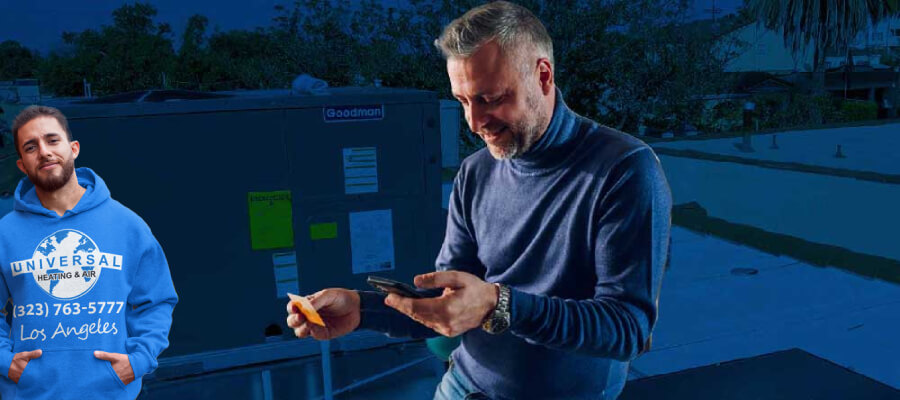
Avoid Costly HVAC Repairs
It’s simple to avoid costly HVAC repairs. Call Universal Heating and Air and schedule an HVAC inspection. We’ll share maintenance tips to help you avoid costly repairs and ensure your HVAC system runs as efficiently as possible and your AC keeps you cool, no matter what Mother Nature throws at the LA Area.
Do your Air conditioning units need an emergency repair? Call us at (323) 763-5777 or schedule an appointment.

